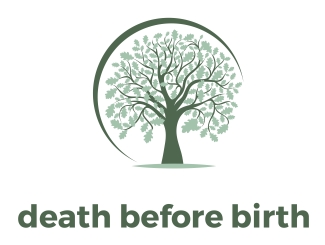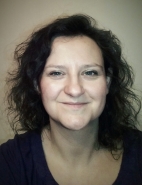The Perceptions of Pregnancy blog, like the Researchers’ Network, aims to reach beyond boundaries and borders, and to facilitate an international and interdisciplinary conversation on pregnancy and its associated bodily and emotional experiences from the earliest times to the present day. This week, to coincide with Baby-loss awareness week, Karolina Kuberska writes about the importance of language in discussions about pregnancy loss.

There are many difficult aspects to the experience of pregnancy loss; even the most articulate people may struggle to capture the emotional chaos or to accurately describe what it is that they have lost. While distinctions are made by professionals working in medicine and English law between miscarriage (up to 23 weeks and 6 days), stillbirth (from the 24th week), and terminations, these categories may not readily translate into how some people perceive what has happened to them: that their baby has died or that they have lost future hopes and dreams.
By and large, words describing what/who is lost fall into two classes – one emphasises the personhood of the baby, the other is framed by formal medical and legal categories. So on the one hand we have ‘baby’, ‘daughter’, or ‘son’; and on the other we see ‘non-viable fetus’, ‘pregnancy remains’, ‘tissue of pregnancy’ or – more and more rarely – ‘products of conception’.
While many of these words and phrases have their place in legal or medical discourses and record-keeping conventions, they are not mutually interchangeable. It is hard to imagine a universe where ‘baby’ and ‘non-viable fetus’ (‘NVF’) are equivalent. In fact, people who lost a baby in pregnancy may often be rather upset when confronted with phrases that do not chime with how they think of their experience.
Sands and the Miscarriage Association have created awareness campaigns focused on language. Finding the words by Sands encourages and guides people to sensitively start a conversation with someone whose baby has recently died. Miscarriage Association’s Simply Say campaign tackles a fear that saying the wrong thing might be worse than not saying anything at all. But in addition to asking us to actually say something (and helping us make this something sensitive and appropriate), they are also asking us to find the emotional space within ourselves to bear someone else’s grief and vulnerability, not to turn away from them.

A part of the Death before Birth project involved interviewing people supporting those who have experienced pregnancy loss, such as funerary industry representatives, bereavement midwives and nurses, and mental health counsellors. All of these people spoke about the imperative for navigating language choices with empathy. Professionals supporting people who have lost a baby in pregnancy must straddle the vocabulary divide with great skill and sensitivity but are not immune to tensions between words and legal categories. They know that they should mirror the way that parents talk about their baby who was miscarried, but they also know that this baby might be turned into an ‘NVF’ on a form that must be filed. A series of blog posts on the experience of working in babyloss illustrates the challenges and rewards of this kind of work. It is important to appreciate the emotional aspect of the work of those professionals who witness and support parents who grieve the loss of their baby in pregnancy.
We may, on an intellectual level, appreciate that different words fit different contexts and that it is not always possible to foresee others’ reactions to what we say, no matter how well-intentioned might be. It is also crucial to remember that you do not have to be a bereavement professional to be able to express compassion.
Further reading:

Karolina Kuberska is a medical anthropologist with a special interest in maternal and reproductive health. She received her PhD from the University of St Andrews. She has previously worked with indigenous highland migrants to lowland Bolivia, concentrating on the relationships between emotions, sociality, and well-being as well as understandings of the body that incorporate traditional and biomedical notions. Between 2016-18, she was a member of the research team working on an ESRC project Death before Birth at the University of Birmingham, UK, that explored socio-legal intersections of decision-making processes in the experiences of miscarriage, termination, and stillbirth in England. Currently, she is a Research Associate at THIS Institute at the University of Cambridge where she is involved in a range of projects looking into ways of improving the NHS.